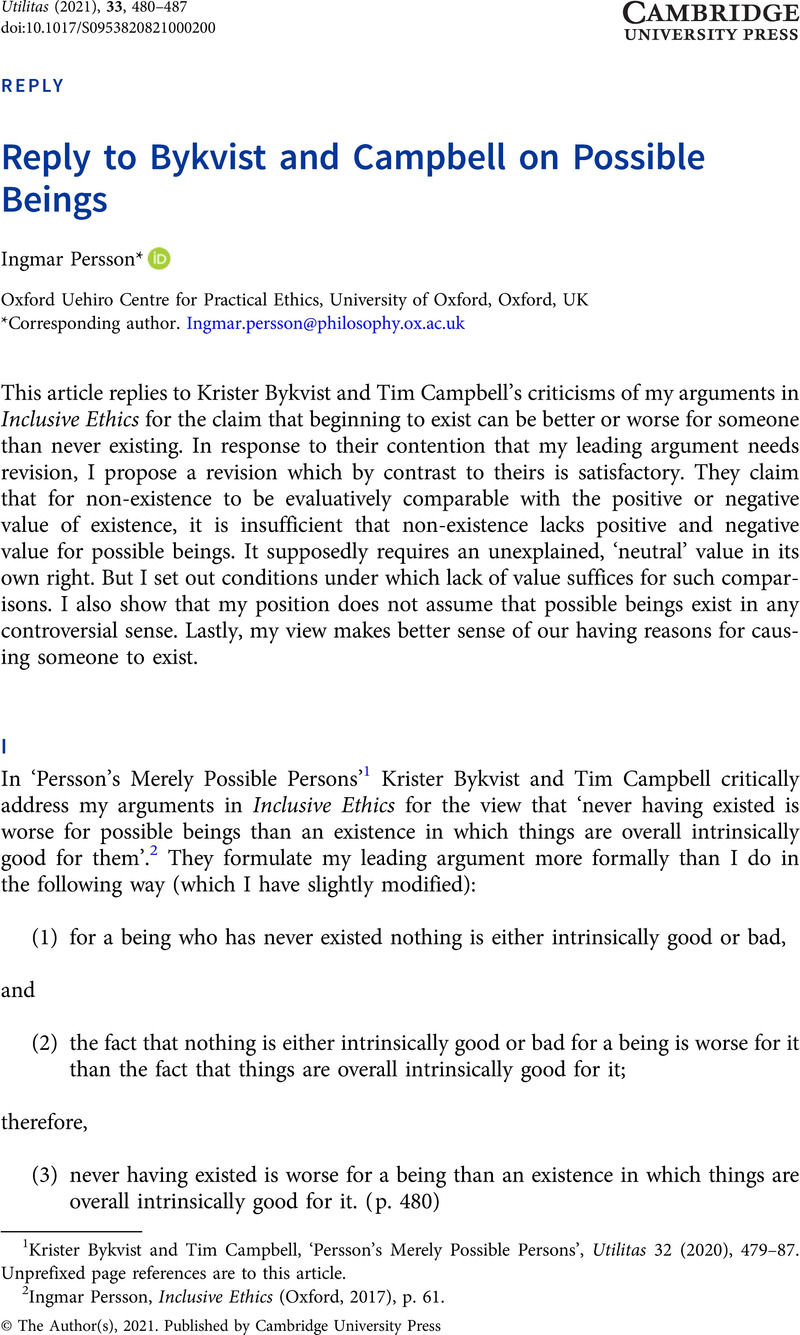Article contents
Reply to Bykvist and Campbell on Possible Beings
Published online by Cambridge University Press: 26 May 2021
Abstract

- Type
- Reply
- Information
- Copyright
- Copyright © The Author(s), 2021. Published by Cambridge University Press
References
1 Bykvist, Krister and Campbell, Tim, ‘Persson's Merely Possible Persons’, Utilitas 32 (2020), 479–87CrossRefGoogle Scholar. Unprefixed page references are to this article.
2 Persson, Ingmar, Inclusive Ethics (Oxford, 2017), p. 61CrossRefGoogle Scholar.
3 Parfit, Derek, On What Matters (Oxford, 2011)Google Scholar, vol. 2, Appendix J.
4 Persson, Ingmar, Our Identity and the Separability of Persons and Organisms, Dialogue, 38 (1999), 519–33CrossRefGoogle Scholar. But, as I indicated in this article and have contended in other publications, including Inclusive Ethics, ch. 3.1, I do not think a Lockean or any other theory of our identity is correct.
5 Thanks to Bykvist and Campbell for having prodded me to clarify my position on the matters discussed. Thanks also to Suzanne Uniacke and two anonymous reviewers.
- 1
- Cited by



